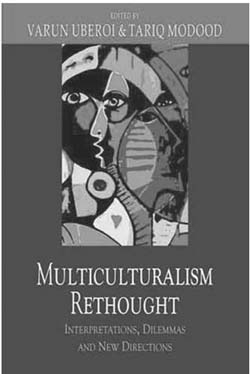To those who describe Bhikhu Parekh as the leading political theorist of Indian origin, essays in this volume will show that such parochial frames of representation do not do justice to his ideas. He is, and must be viewed as an eminent political theorist of our time, whose work has contributed enormously to our thinking about political concepts that we use to analyse the modern world and confront the challenges of our time. His critical engagement with the liberal tradition, his efforts to explore a space beyond liberal nationalism, on the one hand, and communitarianism, on the other, his reflections on questions of race, identity, nation and sovereignty, cannot be ignored by students of politics and political theory anywhere in the world. The papers in this collection, written in his honour, make this amply clear. Many of the contributors engage with aspects of Parekh’s thought with this understanding. To those who are not sufficiently familiar with his writings, this volume offers a glimpse of Parekh’s thinking and gives them good reasons to read his works; to those who are acquainted with his views, it offers rich analysis that can only add to one’s understanding.
Over the years Bhikhu Parekh has written on some of the most influential political philosophers in the western and Indian tradition: Karl Marx, Hannah Arendt, Jeremy Bentham, Gandhi (to name a few). He has also reflected on concepts of fundamentalism, socialism and violence. Yet, over the last three decades it is his engagement with questions of cultural diversity that have shaped debates in academic institutions and the political realm. It is therefore not entirely surprising that this collection focuses primarily on his book, Rethinking Multiculturalism, along with his work on identity. Needless to say, questions of accommodating differences, the conceptual and institutional innovations required for this task, form the core of the volume.
The first few essays give us a picture of his political philosophy. Taking his work on multiculturalism seriously, they try to uncover the philosophical underpinnings of his theorization. Some reflect on the nature of his non-monistic political philosophy and where he stands vis-à-vis other pluralist traditions; others explore the major intellectual influences on his thinking.The question of origins and influences is always a tricky one and it reflects on the commentators’ own intellectual location as much as that of the subject analysed. Raymond Plant speaks of the Hegelian influence on Parekh’s conception of identity. The idea that one cannot jump from the individual to a concern for humanity in the universal, and that the latter has to be developed through the particular in cultural forms, is an insight that comes from Hegel. Thomas Pantham finds Gandhian influence on Parekh’s work; in particular, on his notion of intercultural and inter-civilizational dialogue.
In a compelling essay, Paul Kelly turns his gaze away from Indian influences and locates Parekh’s work within the pluralist tradition that dominated Britain in the 20th century. Differentiating his thought from those of Figgis, Cole and Laski, on the one side, and the critics of the monist tradition, on the other, Kelly argues that Parekh’s critique of moral universalism is ‘extending’ and ‘updating’ (p.39) the pluralist tradition. This is a different point of entry into Bhikhu Parekh’s thought, in particular, and multiculturalism in general.

